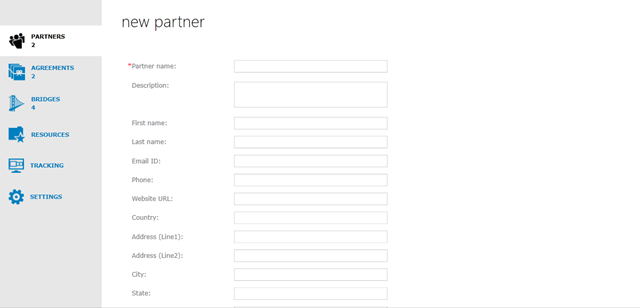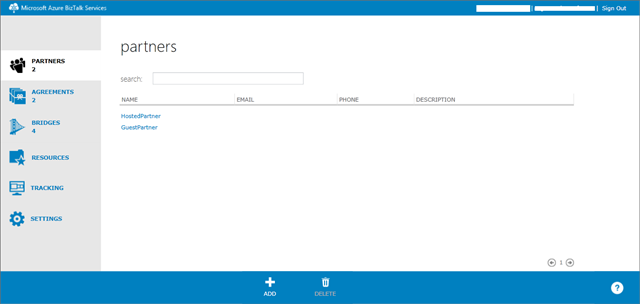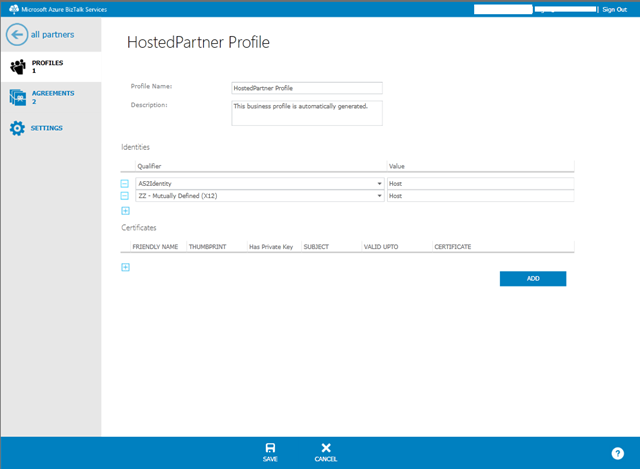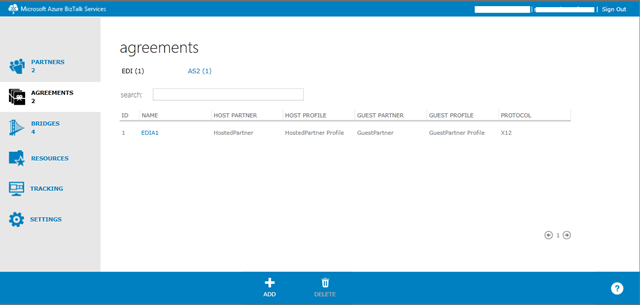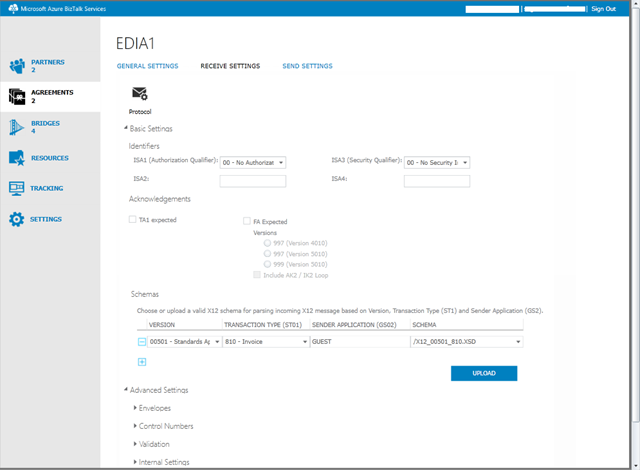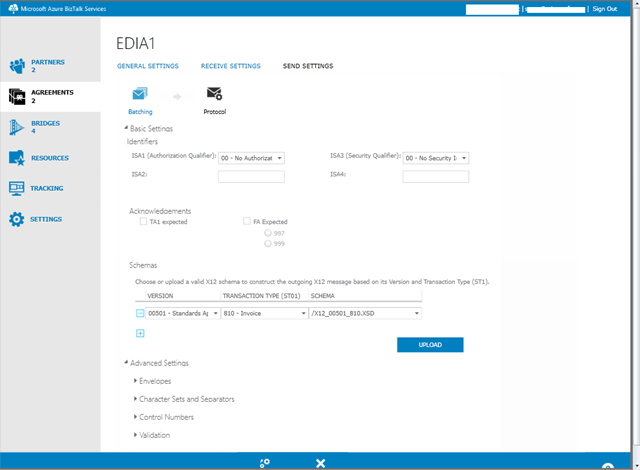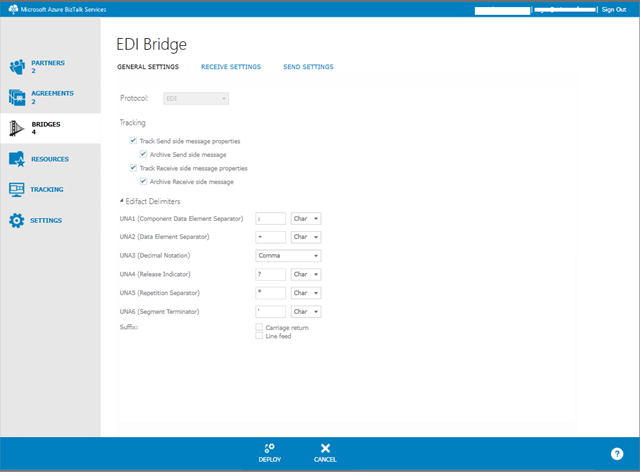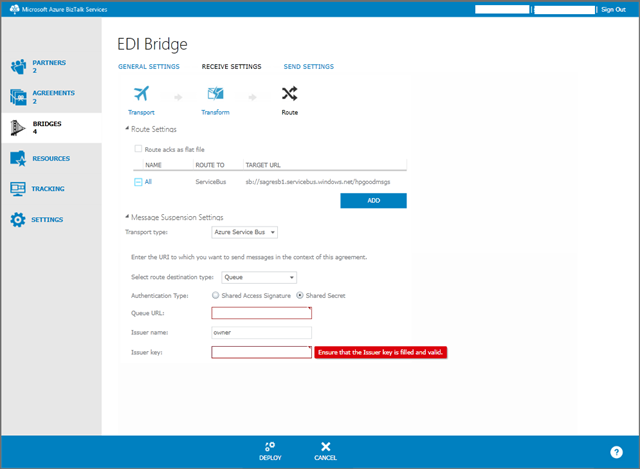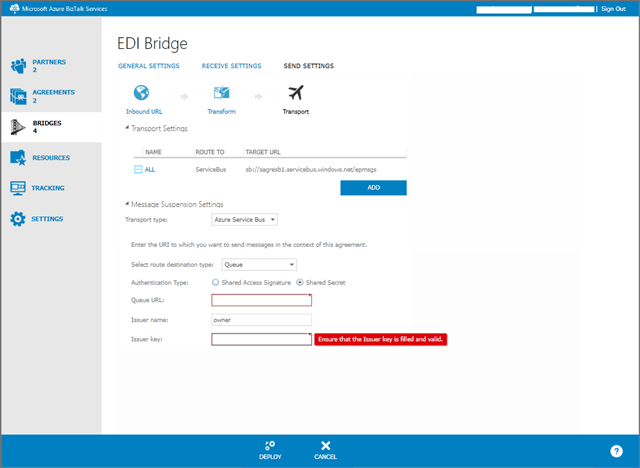B2B (EDI / EDIFACT / AS2) (as of OCT-2014 release)
BizTalk Services provides a BizTalk Services Portal on the cloud that enables you to manage your EDI message transactions with trading partners.
Data received from partner organizations is often categorized as business-to-business (B2B) data transfer. One of the standard and most commonly used protocols for B2B and EDI is X12. Microsoft Azure BizTalk Services provides a BizTalk Services Portal that enables you to manage your trading partners and B2B messaging. The Microsoft Azure BizTalk Services Portal enables service providers to add trading partners and configure agreements that can be deployed to Microsoft Azure. The trading partners can then be send X12 messages using HTTP, AS2, FTP/S, and SFTP as transports. Once the message is received, it will be processed by the B2B pipeline deployed on Microsoft Azure and is routed to the destination configured as part of the agreement.
The general flow is like
- Create the Partners and Profiles
- Create Agreements
- Create bridges
Create Partners and Profiles
The Partners page displays the list of partners with their name, email, phone, and description. Using this page, you can add or delete partners and their profiles.
It is important to understand the concept of a Service Provider and a Partner. The Service Provider is you or your company. A Partner is whomever you receive or send EDI files, which can include another company, another department within your company, and so on. Pipelines are deployed for the Hosted Partner when the agreement is deployed. Receive and Send settings are oriented to the context of the Hosted Partner. For example, the receive settings in an agreement determine how the Hosted Partner receives messages sent from a Guest Partner. Likewise, the send settings on the agreement indicate how the Hosted Partner sends messages to the Guest Partner.
Create Agreements
An agreement is defined as a contract between two trading partners for transacting messages over B2B Protocols. An agreement contains the technical details of configuration between two partners for exchanging EDI transactions. The TPA defines the settings for both sending and receiving messages. A TPA involves defining the agreement settings including transport settings and the pipeline definitions (transform and route settings) between the partners.
Since AUG-2014 release, Agreements and Bridges are decoupled. In a few tutorial you may still find old way of configuring agreements where you have to provide information which now is available in the bridge configuration. (e.g. Transport, Route etc.) Those tutorial will get updated. That specific information now will be available in EDI / AS2 bridges – so use bridges while configuring that information.
You can created X12, EDIFACT, AS2 agreements.
Create Bridges
You can create bridges to process EDI / AS2 messages directly from the BizTalk Services Portal. Bridge configuration includes information such as which messaging transport to use, transforms (if required), and where the messages must be routed to. The bridges associate with the EDI / ASW2 agreements at runtime and use the EDI / AS2 protocol-related settings that are defined as part of the agreement. For more information, see How do bridges resolve to agreements at runtime?
